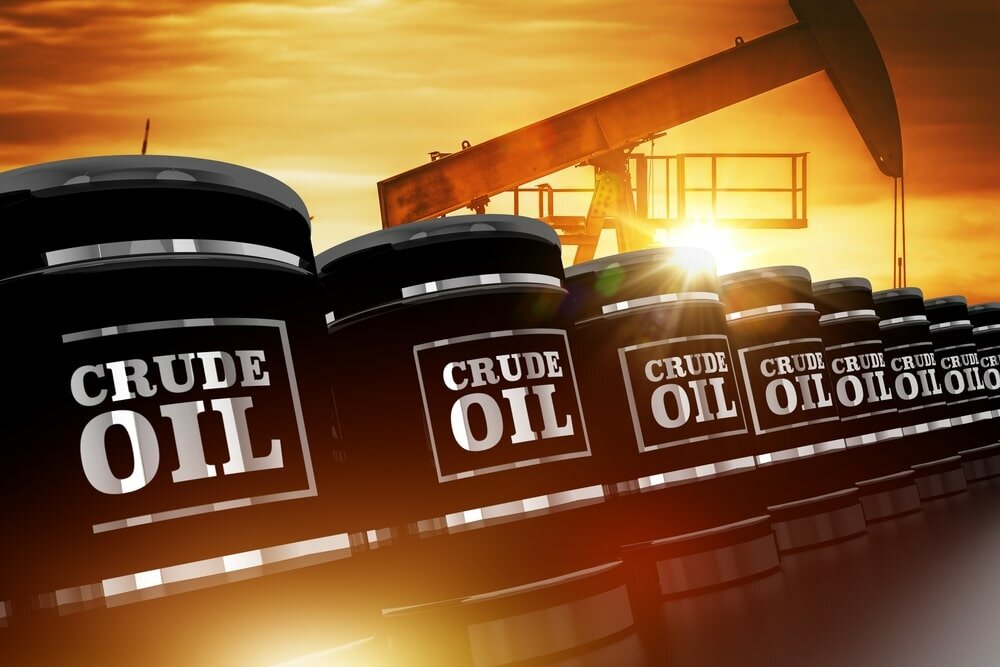The Nigeria Extractive Industries Transparency Initiative (NEITI) says that 692 million barrels of crude oil was produced in the country in 2017.
NEITI disclosed this in its report, entitled, “pilot study on commodity trading for 2017” and released in Abuja, on Thursday.
“The total crude oil production for 2017 was 692 million barrels. Out of this volume, the share that went to the federation was 240.9 million barrels representing 35 per cent of the total crude oil production for the year 2017.
“ A trend analysis for the year under review shows that the 2017 federation share was four per cent higher than the 231.6 million barrels in the same category for 2016 but was 19 per cent lower than the 297.8 million barrels for 2015.’’
According to the report, it shows slight improvement on the figure for 2016, a year characterised by vandalism and sabotage of oil facilities.
It noted that crude production for 2017 was about a fifth less than the 2015 level.
The report further showed that out of 240.9 million barrels federation share for 2017, Domestic Crude Allocation (DCA) had 105. 9 million barrels or 44 per cent while FIRS Liftings got 57.3 million barrels or 24 per cent of the share.
Also, Federation Export got 50. 2 million barrels or 21 per cent of federation share.
Third Party financing, 17.6 million or 7 per cent of federation share and DPR liftings was 9.9 million barrels or four per cent of federation share.
On the 105.9 million barrels DCA crude assigned for local supply of refined products, Direct Sale Direct Purchase (DSDP) got 72. 8 million barrels or 69 per cent.
Refineries got 26. 5 million barrels or 25 per cent, Product Exchange received 4.7 million barrels or four per cent while Export (unutilised portion of DCA) got 1.9 million barrels or two per cent, the report said.
“The total revenue from sale of federation share of oil and gas for 2017 was 14.5 billion dollars—13.18 billion dollars or 90.8 per cent from crude oil and 1.32 billion dollars or 9.1 per cent from gas.
“NNPC deducted N297 billion from earnings from the Domestic Crude Allocation as costs and losses,’’ it added.
A breakdown of the deduction indicated that N141.6 billion was for under-recovery on petroleum products, N25 billion for crude and product losses and N130.4 billion for pipeline repairs and maintenance.
“The Sum of N77.92 billion was under-remitted by NNPC to the Federation Account from Domestic Crude Allocation in 2017.
“NNPC acknowledges the under-remittance and states that there is an on-going reconciliation to net off the N77.92 billion from the established Federation indebtedness to the Corporation of N797bn arising from KPMG Forensic audit of the Corporation at the instance of the Federation,” it noted
On crude destination in 2017, the reports showed that the federation crude went to 29 destinations.
It noted that the top-five destinations were India with 41.3 million barrels (17.12 per cent}, the U.S., 30.6 million (12.72 per cent), local refineries, 26.5 million barrels (10.98 per cent), Netherlands, 22.9 million barrels (9.5 per cent) and Spain, 21 million barrels (8.83 per cent).
It added that 60 individuals and consortiums were buyers of federation’s crude in 2017 with the top five buyers as Duke Oil Company, the trading arm of NNPC, which lifted 29.3 million barrels (12.16 per cent}.
TOTSA/Total oil Trading, lifted 18.4m barrels (7.67 per cent), Port Harcourt Refinery lifted 18 million barrels (7.49 per cent), SIR/Sahara Energy Resources lifted 15.2 million barrels (6.32 per cent) while LITASCO SA/MRS Oil and Gas lifted 10.5 million barrels (4.38 per cent).
NEITI said the report did not cover other revenue streams from the sector, such as Petroleum Profit Tax (PPT), royalties, signature bonuses, dividends, penalties and fees, statutory payments, among others.
Commenting on the report, NEITI Executive Secretary Waziri Ado, said other details on production and processes would be in the 2017 NEITI oil and gas industry report to be released soon.
He said that the pilot study which was conducted by BDO, an international auditing and advisory firm, covered four government agencies and 73 companies.
“ The 73 companies were six bilateral companies, 13 international trading companies, four trading arms of international oil companies, 25 Nigerian trading companies, two NNPC trading companies, nine refineries, and 14 DSDP contractors,’’ he said







